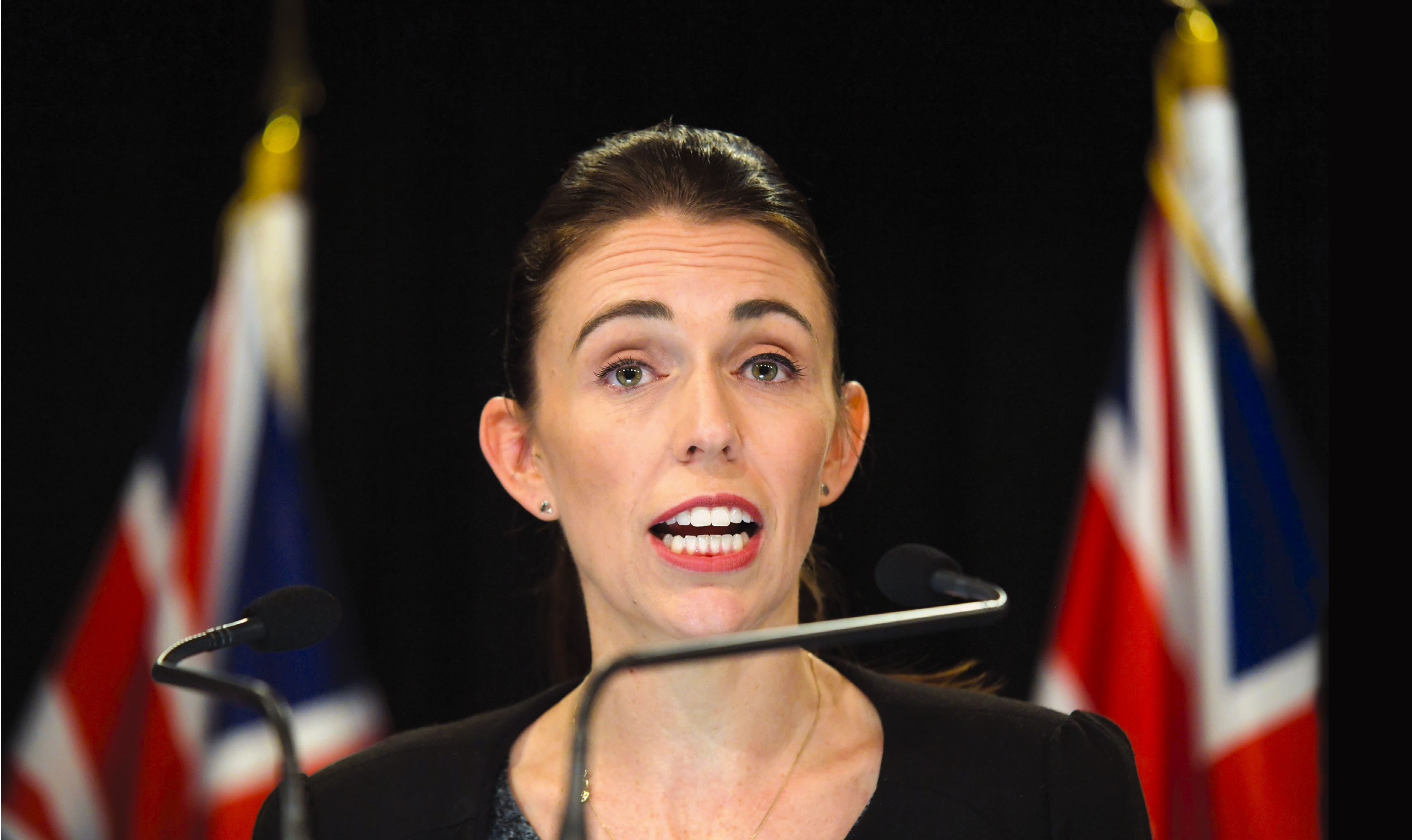MODEL LEADERSHIP
THE HUMANE PRIME MINISTER
Amantha Perera is impressed by the compassion displayed by Prime Minister Jacinda Ardern
In times of utter despair, we seek hope – and so it was in New Zealand, following the mosque shootings in Christchurch. In the aftermath of the carnage, an entire nation and even those beyond it looked for a spark of hope.
A glimmer of it came from a hazy photograph taken through a window by a town council worker. In that image, New Zealand’s Prime Minister Jacinda Ardern is seen wearing a black headscarf, her eyes almost teary and forehead slightly wrinkled.
Kirk Hargreaves took the picture when Ardern stood up during a meeting with Muslim community members in Christchurch less than a day after the massacre. The flowers and branches that are reflected in the window add to the surreal nature of the photograph.
It was the image of a compassionate leader – one who understands the sorrow of her entire nation, not only that of political supporters. The photo captures the pain that New Zealand suffered even as its people sought unity and tried to look beyond the tragedy.
Speaking later, Hargreaves said: “When I took it, I was so moved by the humanity. I probably didn’t know how well it was going to go but as a photographer, I knew that this was a cranking shot. It just sums up what she’s doing – how she’s offering her humanity in a way to those people; and she’s listening, she’s concerned; and she is loving.”
The hyperbole is obvious but in a world that has grown used to the bombastic narcissistic nature of US President Donald Trump, Ardern comes as a welcome relief. Here is a leader who isn’t afraid to be honest and admit mistakes. She is also willing to work through them and towards solutions.
Within a fortnight, Ardern pushed through reforms to existing gun laws. The new restrictions severely curtail the use and circulation of military style weapons in New Zealand. Gun control was one of the first measures Ardern took soon after the attack.
“What we’re banning today are the things that were used in last Friday’s attack. Our history changed forever. Now our laws will too,” she said while announcing the new laws. She also pushed for restrictions on accessories used to modify firearms, which are freely available. It is the use of these accessories that makes such attacks so deadly.
For example, ‘bump stocks’ are gunstocks that can be used to boost ‘bump firing.’ The latter is the capacity to use the recoil of a semiautomatic firearm and fire multiple rounds in rapid succession. The ban that was initiated after the 2017 Las Vegas attack is taking effect only this year in the US.
Ardern’s swift action has won her praise across the globe. Gun control activists in Canada didn’t waste time in calling on Prime Minister Justin Trudeau, another young liberal political force, to take note and initiate similar reforms in his country.
Comparisons have been made about how leaders like Trump react to racially motivated attacks and how Ardern responded. It is not lost on many observers that she made an extra effort to appeal to the battered Muslim community – not only by way of words but also in her dress code and visible empathy.
Local observers have noted that similar actions would have healed wounds faster after the race riots in Aluthgama and the Kandy District. They say that Sri Lanka’s healing hasn’t taken place, and racial fissures have remained below the surface since no political leader has honestly and empathetically appealed for true national reconciliation.
Most if not all have played politics with racist sentiments while keeping an eye on voter support. The level of sincere humanity shown in public by New Zealand’s premier takes courage. Unfortunately, Sri Lankan leaders can’t match their words with actions unless they have a mob behind them.
Before the massacre, Ardern was known in the world mostly for having a child with her partner while she was prime minister. It was only after Christchurch that the world was able to see her true character.
Following such incidents, world leaders generally try to stay politically safe. In the aftermath of 9/11 for instance, President George Bush appeared more gung ho than ever, priming for battle.
On a visit to the US about three weeks after 9/11, I had a hard time explaining that the important thing was to understand why people would ram aeroplanes into buildings rather than how. Such conversations were inevitably drowned by the jingoistic drumbeat in Washington D.C.
At a time of national crisis, leaders set the agenda that influences an entire country’s psyche. They have the nation behind them. Those like Bush were swayed by the initial anger and hardline advisers.
In the end, the reaction to 9/11 resulted in creating more wars, extremism, attacks and of course, ISIS.
Ardern has been decidedly different.
It may be that because her constituency is not stricken with extremism like some others, she’s able to be what she is. But it’s her empathy that has brought New Zealanders together. She has also sent a wider message to the world at large – that there is a better and far more humane way to deal with inhumane violence of the lowest kind.
Whether that approach can be sustained and will bear fruit in creating an environment of national unity isn’t yet clear. Only time will tell whether politics will eventually derail that compassionate leadership… or not.




